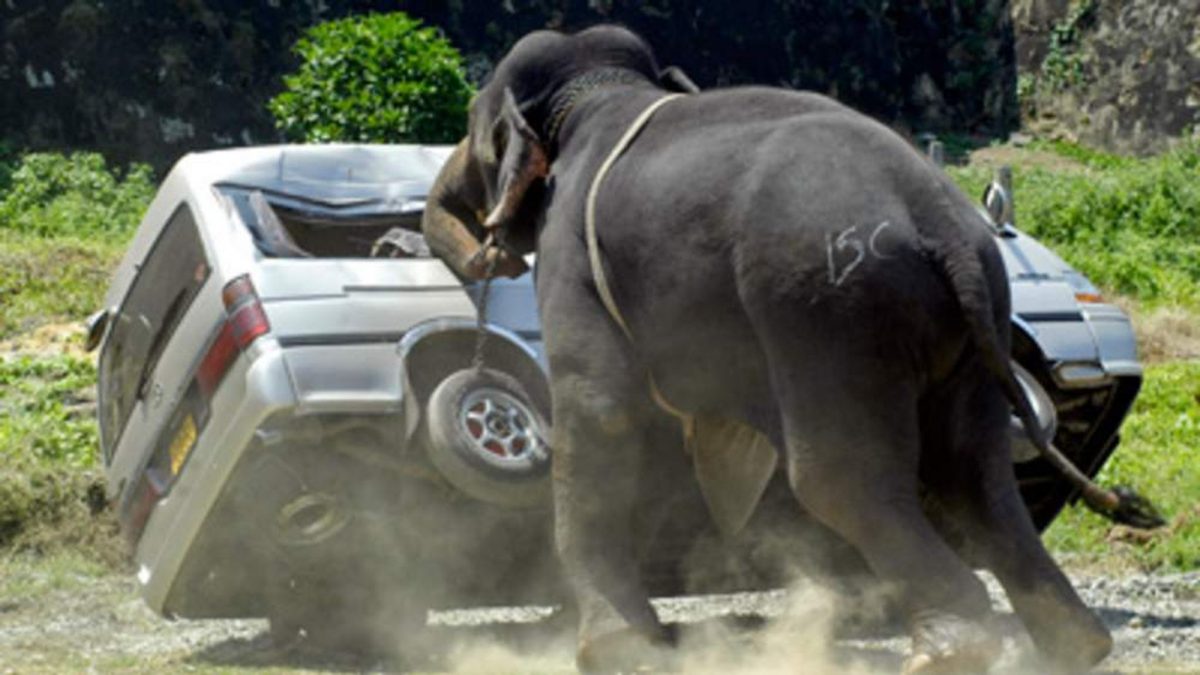How victims of wildlife attacks suffer double pain

One moonless night in May 2016, a herd of marauding elephants from Tsavo East National Park raided John Baya’s farm in Sagalla in Voi Sub-County.
The herd consumed maize, beans, sorghum and millet crop. At dawn, the jumbos retreated to the park leaving behind a flattened wasteland.
The farmer reported the loss to Kenya Wildlife Service (KWS) to start the process of costing the destruction. The costing is done by the County Wildlife Compensation Committee in line with the Wildlife Conservation and Management Act (WCMA) 2013 before compensation if approved.
The valuation brought the total cost of his loss to Sh1,946. Eight years later, the elderly farmer still awaits his money.
“It’s been an unending wait. Whenever I ask about the status of my compensation, KWS says the forms are in Nairobi,” says Baya.
Baya’s predicament mirrors that of hundreds of small holder farmers in Taita-Taveta County and other regions where incidents of human-wildlife conflict are rife.
Most farmers are yet to receive compensation for losses incurred from as early as 2014.
In a region notorious for elephant invasion, the destruction of farms by elephants has become an annual cycle.
Florence Malandi, a Voi farmer, has been waiting for compensation since 2014. She dutifully filed compensation for each year her crops were destroyed.
No money has ever come her way.
“I filed for compensation as required by law. It’s been years. I really don’t know when this money is coming,” she said.
The gloomy mood contrast sharply with the jubilation that greeted the October 2022 announcement by the government about the release of Sh206 million to compensate farmers in the region. The amount covered claims from 2014 to 2021.
KWS breakdown indicated that Sh80 million was for 16 deaths, Sh12.5 million was for 67 injuries and Sh106 million was for 228 cases of crop destruction.
Other categories included six million for livestock predation and Sh5.1 for property destruction.
While compensating, deaths and severe injuries are prioritized with the former getting five million shillings while the latter receiving up to three million shillings, depending on severity of the injury.
Devalued
KWS says that claims worth Sh139 million for 2021 to 2022 are being processed. They include 12 deaths, 838 cases of crop destruction, nine injuries and 153 cases of destroyed property.
While deaths and injuries are paid off quickly, crop destruction and livestock predation are kept in indefinite wait, a situation that adds to the pain and disillusionment by farmers already burdened by poverty and reeling from crop and animal losses.
Ben Mshai, a Kamutonga farmer, says delay in payment is painful for farmers because of devalued compensation. He notes that money allocated in 2015 lacks the same compensatory value and impact in 2023.
“A lot of years have passed. Even if the money is paid today, it will not have the same impact because costing and valuation of the losses was done based on prevailing circumstances of those years,” he argued.
What makes the delays particularly agonizing is the glaring disparities in terms of the amounts awarded. While some farmers are poised to get millions, hundreds of others, small-scale holders who bear the direct brunt of human-wildlife conflict in Tsavo landscap, are expecting little amounts ranging from Sh1,061 to maximum Sh70,000.
Peter Wanjala, a Mwatate farmer, says it is unfair to delay compensation for years, only to pay such small amounts.
He says a farmer asking for a few thousand shillings should not be placed in the same category as those waiting for millions.
“It is not right to keep a farmer who is getting a few thousand shillings waiting for years. Such claims should be settled as quickly as possible,” he says.
He disclosed that some farmers had stopped reporting the losses altogether especially if the amounts involved were too little.
Unpaid claims
To address the delays, the government is mulling on modalities that will entail expediting small claims for artisanal farmers.
Maara MP Kareke Mbiuki, who chairs the National Assembly Committee on Tourism and Wildlife, says there should be a system where claims of small amounts should be cleared quickly.
Speaking in Voi while gathering public views on human wildlife conflict, the legislator said such a policy would cushion small-scale farmers, even as he asked Kenyans to be realistic that not all amounts will be paid off at once.
“The small amounts owed can be paid off quickly then the government can work on processing substantially larger claims,” he said.
The MP noted that the government had unpaid claims worth Sh3 billion while Sh2 billion worth of unprocessed claims were pending.
This, he said, informed the push by the government to outsource the compensation scheme to insurance firms for settlement of claims.
KWS Tsavo Conservation Area Senior Assistant Director Kennedy Ochieng said all claims that were filed had been transmitted to Nairobi for processing. “After evaluation, we fill the forms and send them to headquarters for processing. That is where payment is done from,” he said.
While touring Wundanyi, Cabinet Secretary for Interior Security Kithure Kindiki stated that the government was seeking a permanent solution to challenges of human-wildlife conflict in the county.
The CS directed Taita-Taveta leaders and county security team, led by the County Commissioner, to draft a joint report with recommendations to address the menace. The report, he said, should be presented to his office within a month.
“We need a permanent solution to the issue of human-wildlife conflict,” he said.
Rev David Zowe, County Chair of Peace Committee, says part of the recommendations should be to have small claims settled as soon as they are reported. He also called for the introduction of strict timelines to compensate farmers.
“Should these timelines be violated, the money can generate interest to be paid to the beneficiary who has waited for too long,” he proposed.











